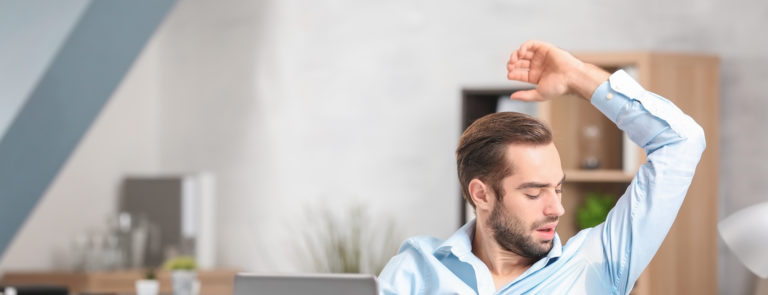15% off £30 OR 20% off £40
What is lifestyle medicine?

You might have heard the term thrown around, but what actually is lifestyle medicine? If you’re new to it, we’re here to break it down in a beginner friendly way. We’ll dive into who the British Society of Lifestyle Medicine are, explain what the six pillars of lifestyle medicine are and why they’re important for your overall health.
Intro to lifestyle medicine
Let’s start with what lifestyle medicine actually is. Essentially, it’s “evidence-based clinical care” that focuses on behavioural lifestyle changes to improve your overall health and wellbeing. This includes your mental wellbeing, physical activity, social connection, healthy eating, sleep and minimising your use of harmful substances.1
Dr Fraser Quin, Executive Director at BSLM, sums it up in a sentence: “Lifestyle medicine is a modern medical discipline providing solutions to the challenge of our declining health and over-stretched health-care systems.”
The main principles of lifestyle medicine include:1
- Understanding how social and economic factors affect health and wellbeing (for example, your job, education and income)
- Using proven methods to support long-term lifestyle changes
- Being educated on the six pillars of lifestyle medicine – which we’ll go into later
Of course, is not seen as a remedy for all health issues, but part of the solution to conditions related to lifestyle.
Who are the British Society of lifestyle medicine?
If you have come across lifestyle medicine online before, there’s a good chance that you read information from the British Society of Lifestyle Medicine (BSLM). The BSLM are an independent charity who promote lifestyle medicine to help improve people’s general health, in a bid to manage and potentially prevent some chronic diseases.2
"H&B has been promoting lifestyle medicine because it aligns with its brand promise and mission to make health and wellness a way of life for everyone, while adding quality years to their life. By promoting lifestyle medicine, H&B can attract health-conscious consumers who are looking for effective evidence-based solutions to prevent and manage diseases. It will also enable H&B to expand their offerings to go beyond products to also include services that support a healthy lifestyle, such as healthy nutritional advice, lifestyle medicine coaching, and testing to better understand and manage their health and wellness." - Dr Hanine Estephan, Director of Science & Wellness
The key pillars of lifestyle medicine
We touched on the six key pillars of lifestyle medicine being one of its driving principles, but what actually are they? From healthy eating and mental wellbeing to physical activity and sleep, we’ll explain why they’re important, what an ideal example of them looks like and the benefits that they may offer.
“Lifestyle medicine is a discipline that considers the socioeconomic drivers of behaviour, acknowledges the difficulties people face, and uses person centred techniques to support lifestyle changes to tackle nutrition, physical activity, social isolation, sleep, mental wellbeing, and consumption of harmful substances such as tobacco and alcohol.”
Now let’s dive into the six pillars...
Healthy eating
Most of us are aware that healthy eating is important, but why is it such a key pillar for lifestyle medicine? Having a poor diet is considered a significant risk factor for a range of chronic diseases and it’s estimated that 11 million deaths globally may be associated with unhealthy eating habits.3
So what kind of diet do the BSLM recommend? Rather than advising one specific type of diet, they use an evidence-based approach instead. Specifically though, they try to focus on avoiding ultra-processed food as much as possible – aka, food and drinks that have been processed with additives and preservatives, as well as being high in salt, fat and sugar.4

- Following a plant-based diet full of fruit, vegetables, nuts, seeds and legumes.
- If you want to consume meat and fish, choose unprocessed and high welfare versions.
- Opt for wholemeal and wholegrain varieties of carbs, like bread, pasta and rice.
Mental wellbeing
Another key area of lifestyle medicine is supporting mental wellbeing by using non-pharmaceutical techniques, to help prevent and manage common mental health conditions. Although it goes without saying that there is no shame in taking medication for your condition, and BSLM recognises that medication plays vital role to play in effective management and treatment of severe mental illness.5
- Supporting people to find purpose and meaning in life
- Encouraging people to access nature and the outdoors
- Using non-pharmaceutical, ‘positive psychology’ interventions such as gratitude practices, Cognitive Behavioural Therapy and Acceptance and Commitment Therapy
Healthy relationships
Whether it’s your friendships, a romantic partner or your family, lifestyle medicine also focuses on healthy relationships as one of the key pillars. This is because humans are fundamentally social beings, which means that we need to connect with others in order survive and thrive!
Physical activity
Another key pillar of lifestyle medicine is physical activity. Modern life doesn’t always lend itself to frequent movement, what with working on computers, using our smartphones, tablets, driving everywhere and watching TV being a key part of a lot of peoples lives.
It’s also important to note that the World Health Organisation highlights a lack of physical activity as the fourth leading risk factor for mortality.8

Minimising harmful substances
While most of the key lifestyle pillars are positive, this one may be classed as a ‘negative’ because it involves reducing or stopping doing something altogether. Specifically, the use of harmful substances like smoking, excessive drinking and taking recreational drugs.9
But everyone is approaching this from a different angle, and many people may be dealing with addictions. This is why BSLM promotes a non-judgmental, supportive and compassionate approach – because ‘just giving up’ isn’t always an option.
Lifestyle medicine approaches and techniques include motivational interviewing, health coaching, screening, readiness assessments, brief interventions and extended interventions, to help minimise the use of these harmful substances.
Sleep
And last, but by no means least, is sleep. It’s easy to push sleep to the bottom of your priority list, but you shouldn’t because it’s vital for our overall health and wellbeing. And that’s why it’s one of the six key pillars of lifestyle medicine.
Sleep is essential for giving our bodies a rest and restoring our energy levels – and we should aim for seven to nine hours of good quality sleep each night.10 And not only this, but if we get less than five hours, it can have a negative impact on our gut health and our mental health!10,11
BSLM helps people to achieve good quality sleep by promoting seven to nine hours of sleep a night, following a regular sleep pattern (aka, going to sleep and waking up at the same time every day) and providing information on what causes sleep deprivation.
The final say
And that’s a wrap on all things lifestyle medicine. To sum up, it focuses on changes you can make in your day-to-day life that all add up to improved overall health. And please remember that you can call on the help of the experts to support you, like the British Society of Lifestyle Medicine – you don’t have to take it all on alone!
Our own Director of Science & Wellness, Dr Hanine Estephan highlights the importance of lifestyle medicine:
"Lifestyle medicine is important for our consumers because it can help them prevent and manage their health conditions and improve their overall health and wellbeing while reducing the reliance on medication. It can also empower individuals to take control of their own health by providing them with evidence-based information and tools to make healthy lifestyle choices."
1. https://bslm.org.uk/lifestyle-medicine/what-is-lifestyle-medicine/
2. https://bslm.org.uk/about/about-us/
3. https://www.thelancet.com/journals/lancet/article/PIIS0140-6736(20)30925-9/fulltext
4. https://bslm.org.uk/eating-a-healthy-diet-and-avoiding-processed-foods/
5. https://bslm.org.uk/mental-health-and-stress-reduction/
6. https://pubmed.ncbi.nlm.nih.gov/25910392/
7. Waldinger, R. and Schulz, M. (2023) The good life lessons from the world's longest study on Happiness. London, UK: Rider.
8. https://www.who.int/data/gho/indicator-metadata-registry/imr-details/3416
9. https://bslm.org.uk/harmful-substances/
10. https://bslm.org.uk/the-importance-of-good-quality-sleep/















